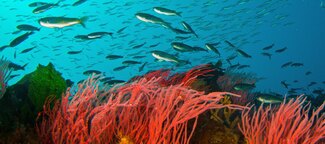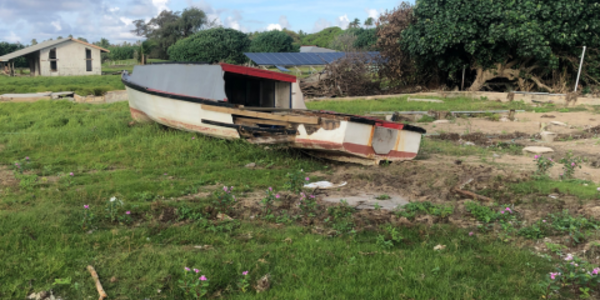A collaboration to make marine biodiversity data more accessible

In 2000, scientists began a ten-year effort to produce the most comprehensive inventory of known marine life ever compiled and created a catalog as a basis for future research. The Census of Marine Life involved over 80 nations, 2,700 scientists, and 540 expeditions. During this decade of discovery, Census scientists discovered new species, habitats, and connections. The data discovered during this effort are invaluable and can be used by scientists for many years to come
The Ocean Biodiversity Information System (OBIS) was created to organize and share this data. OBIS is an international network of data providers and data managers that has been integrating and sharing key information on marine species for over 20 years. OBIS-USA is the United States node of this network, and the U.S. Geological Survey (USGS) coordinates the federal working group.
Recently, OBIS-USA has taken a significant step to ensure that the marine data the U.S. contributes is not just web-accessible, but also properly archived. NOAA NCEI has partnered with the Science Analytics and Synthesis (SAS) Program of the USGS, as well as the NOAA-led U.S. Integrated Ocean Observing System, to ensure that our marine species observations are not only integrated and shared, but also archived. For instance, NCEI assures that data will be accessible for 75 years or until no longer needed for scientific use.
Long-Term Access
This archival guarantee is a vital step forward for OBIS-USA. Prior to NCEI’s involvement, scientists or institutions that shared data with OBIS-USA did not have a guarantee that their data would still be accessible long-term. Now, OBIS-USA ensures accessibility for decades down the line. With this new pipeline and partnership in place, data that are shared through the OBIS-USA Integrated Product Team are automatically archived quarterly at NCEI.
“Previously, scientists sharing their data to OBIS-USA had no guarantee it would still be available 20 years from now,” says Jennifer Webster, NCEI’s representative to the OBIS-USA Integrated Publishing Toolkit. “Through this cross-agency partnership, NCEI has helped ensure these marine biodiversity data are preserved and available for future generations of scientists.”
NCEI and Ocean Interests: Working Together
This achievement epitomizes how government agencies working together can achieve more together than alone. It also represents key U.S. organizational units to the United Nations International Oceanographic Data and Information Exchange, which ensures marine biodiversity data are accessible and preserved. The collaboration between NCEI and OBIS-USA provides the pipeline and methods for U.S. marine species observations to better meet the FAIR Principles of findability, accessibility, interoperability, and reuse of digital assets. In concert, NOAA and USGS are making sure marine biodiversity data are available to researchers not only now but also for future generations.



